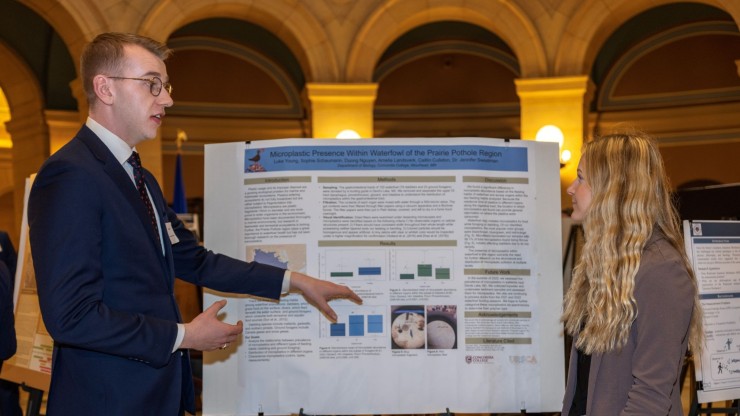No, but it is a good idea to test your interest and ability in the areas you are most interested as soon as possible. Some programs are best started early, such as nursing, pre-medicine, education, and music.
If you have chosen a tentative major, you will most likely take at least one course in that area. To get a detailed answer with respect to the major area that you may have in mind, consult your faculty advisor.
- Talk with your advisor and instructors
- Cultivate good study habits
- Attend all classes
- Visit the Center for Student Success
- Remove distractions
You will probably have about 14 hours in class per week, plus three or four hours in laboratory if you are taking a course requiring lab time. It is generally recommended that you plan two hours of study for each hour spent in class. One way of looking at your college experience is that your full-time job is to be a student. If you are putting at least 40 hours of work in each week to classes and studying, you will likely be a successful student.
Every first-year student is required to complete a First-Year Seminar, as well as Writing to Engage and Communicating to Engage courses. During their first year, students should complete a wellness course. The rest of the courses taken should be electives that will introduce you to your major fields of interest and complete some core requirements. If you have made a special vocational choice such as pre-medicine, elementary education, nursing, or music, your program will be more prescribed.
If you have not made a specific vocational choice, you will receive assistance in selecting a program by which you can explore areas of interest. However, the final choice of sources is yours, so please give thought to your options.
Your course load should be between 12 and 17 credits (excludes music lessons and ensembles). Most students take four 4-credit courses and a 1-credit physical education class. If you are receiving a Minnesota Grant, you must be enrolled in at least 15 credits each semester in order to receive full funding.
The required GPA scale for graduation honors is 3.5 for cum laude, 3.7 for magna cum laude, and 3.9 for summa cum laude. Individual departmental honors are also available. Honors listed in the Commencement program are based on grades up to but not including the current semester. The final honors status is determined after all grades are known.
Your advisor is a faculty member who will help you with decisions about your plan of study and career goals. You will meet with a faculty member during Summer Orientation and with your assigned advisor during Fall Orientation.
You should inform your instructor ahead of time if you need to be absent for good cause. The initiative rests with the student to arrange for appropriate makeup work for classes missed. Illness or family emergency that requires you to miss classes for an extended period of time should be reported to the Office of Student Life and Development.
In accordance with federal regulations and in order to maintain satisfactory progress toward a degree, undergraduate students must meet minimum academic progress requirements. A student whose status is determined to be unsatisfactory is not eligible to receive financial aid unless certain criteria are met. If you have any questions, you can contact the Financial Aid Office.
We sure do! We have programs that range in length from a week during spring break to a full year.



Luke Young ’24
Student Academic Experiences

Navigating Strategic Waters
Jack Yakowicz ’15 knows firsthand the impact of building relationships during college.

Balancing Business With Basketball
Molly Musland ’26 applies her psychology major to gain insight into consumer behavior for her future sports marketing career.